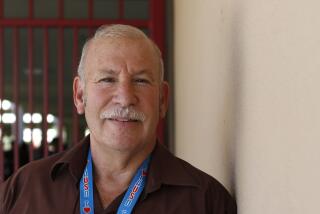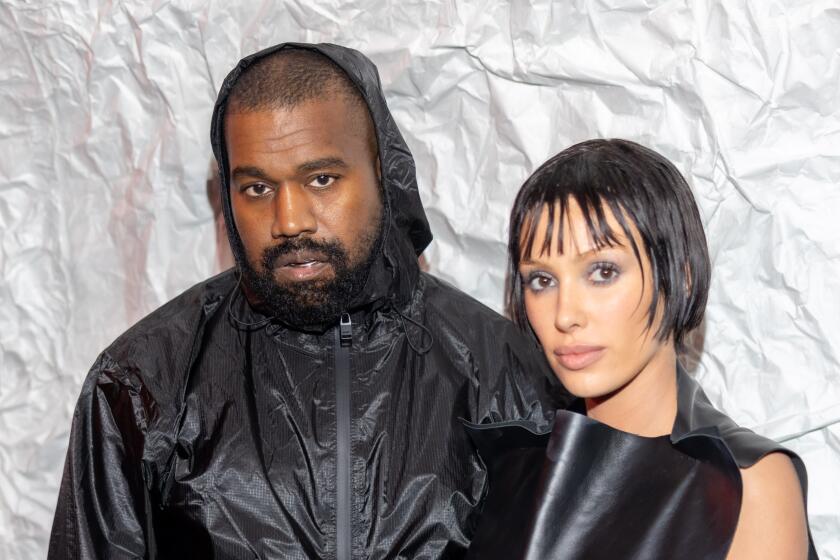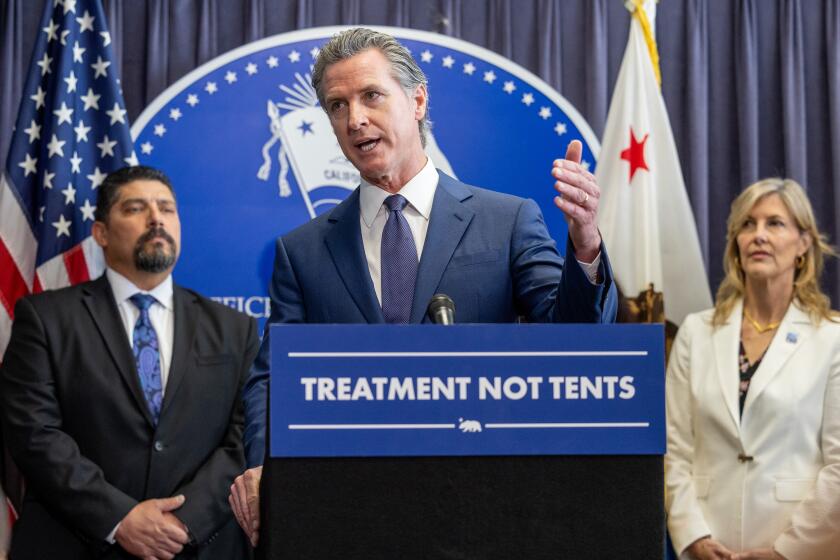Capitol Journal: A taxes-schools disconnect
This is the illogical world we live in: Parents say their children’s schools are underfunded and worry about program cuts. But they don’t want to pay higher taxes to avoid deeper cutting.
They think someone else — the wealthiest Californians — should fork out more to stabilize their kids’ schools.
Actually, guess that’s logical after all. As the late Louisiana Sen. Russell Long used to say: “Don’t tax you, don’t tax me. Tax that feller behind the tree.”
“People are usually very supportive of higher taxes as long as they’re on someone else — drinkers, smokers, gamblers, oil companies, rich people,” says Dan Schnur, director of the Jesse M. Unruh Institute of Politics at USC and a former Republican strategist.
“I’m surprised there hasn’t been a ballot measure to tax lefthanders.”
“People don’t want to pay more taxes themselves,” notes Darry Sragow, a Democratic strategist, “but sometimes they like the idea of government getting more revenue from somebody else. Like, somebody puts a bunch of money on a skyhook and drops it down to Earth.”
This pain-averse side of human nature is on display in a new statewide poll released Wednesday night by the Public Policy Institute of California.
And it illustrates why Gov. Jerry Brown should be rethinking his attempt to call a special election so voters can cast final judgment on his proposal to extend higher levies on income, sales and vehicle licenses for five years. Without the tax revenue, he warns, schools must be whacked.
Voters generally like the idea of a special tax election, the poll found. They also favor Brown’s basic formula — half cuts, half taxes — for closing a $26-billion budget deficit. But tell them the tax details and they bolt.
“Education is one area where people make a connection between what is going on in the state budget and what’s going on in their own lives,” says Mark Baldassare, the policy institute’s pollster and president. “And going to the voters for K-12 funding, realistically, is the only possibility the governor has of getting them to support what he’s trying to do.
“But even with schools in the equation, taxes are a hard sell.”
The survey of likely voters found that:
-- Nearly two-thirds (65%) believe “the quality of education will suffer” if there are further K-12 cuts.
-- A solid majority (58%) is “very” concerned about the budget deficit potentially causing deeper school cuts. Among voters with children in public school, the figure is 70%.
-- A majority (52%) thinks the current level of state funding for schools “is not enough.” More than two-thirds of parents with schoolkids believe Sacramento should spend more.
-- A majority (56%) thinks a special tax election “to prevent additional state budget cuts” is a good idea.
-- A big majority (61%) supports Brown’s half-cuts, half-taxes budget plan when told that temporary tax increases will prevent further K-12 cuts.
-- There’s a huge caveat: 66% of likely voters, including virtually the same percentage of those who have kids in school, object to paying higher income taxes “to maintain current funding” for K-12. Ditto the sales tax: 62% of voters, including 55% of parents.
-- They prefer socking it to the rich. Among all likely voters, 62% advocate raising the top income tax rate on “the wealthiest Californians”; 70% of school parents like that idea.
Never mind that one major reason for California’s unreliable, volatile revenue system — it booms in good times and busts in bad — is that it leans too heavily on the wealthy.
In 2008, the latest year for which the state Franchise Tax Board has complete data, the top 1% of income earners paid 43% of the income tax. But it had only 21% of the income. The top 5% of earners paid 64%.
That year, a taxpayer reached the top 1% by earning at least $440,400.
One thing that should be worrying Brown and Democrats is that a significant number of people who tell pollsters that they like the idea of an election probably savor it for a chance to vote against the governor’s tax plan.
For example, a poll conducted for The Times and the USC Dornsife College of Letters, Arts and Sciences found that 60% of registered voters favor a special tax election. But of those, fully one-quarter believe that “the best thing for California’s future is to cut taxes, even if that means large cuts to education and healthcare.”
So these are anti-tax types a Democratic governor should not be ceding power to in budgeting.
Increasingly in the Capitol, there’s talk among Democrats of placing a spending cap and pension reform on the ballot — as Republicans demand and unions adamantly oppose — but leaving off the tax question.
The Democratic Legislature, with two GOP votes from each house, could pass the tax extension on its own. But Republicans would be protected by linking passage of the spending and pension reforms to continuation of the taxes. If voters didn’t approve the reforms, the tax hikes would automatically expire.
That’s what happened two years ago. Voters rejected a spending cap, and that cut in half the duration of a scheduled four-year tax hike. Brown’s now trying to reinstate it and add three years.
Democrats are aiming for a September special election, just as schools are reopening. Teacher layoffs would hinge on the outcome, along with perhaps electric lights for night football.
Maybe school parents then would feel differently about digging deeper.
More to Read
Start your day right
Sign up for Essential California for news, features and recommendations from the L.A. Times and beyond in your inbox six days a week.
You may occasionally receive promotional content from the Los Angeles Times.







